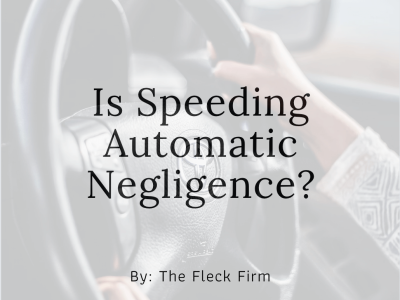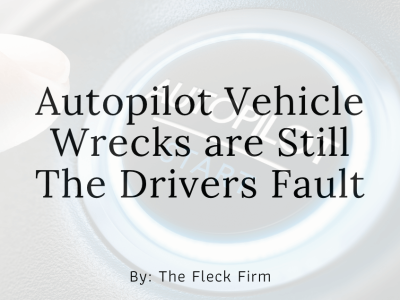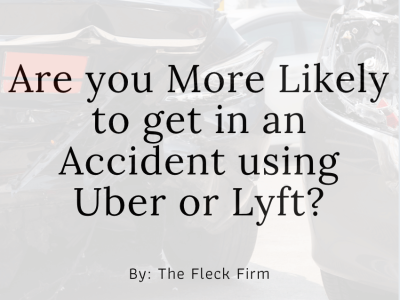How fast can your vehicle go? Do you think that limit is due to the fact that it’s physically impossible to go faster? If so, you’re mistaken. Modern vehicle engines are controlled by an onboard computer that responds to a variety of inputs, including how far you push down the gas pedal. Should they be programmed to prevent the vehicle from traveling faster than the speed limit?
You’re Vehicle Sets Its Own Speed Limit
Manufacturers develop speed limits for their vehicles that may be multiple times the posted speed limit. The top speed of a 2024 Chevrolet Corvette is 189 miles an hour. Where in Kentucky can anyone legally and safely drive a car more than 180 miles an hour, other than on a race track?
These limits are arbitrarily made based on the outer, theoretical limits of controlling the car. Could you or anyone you know, driving on the streets and highways near you, control a car going 189 miles per hour? 170? 130? 90?
A Corvette owner could hack the car’s computer, and it could go faster. One online article spells out how you can change your car’s setting to eliminate this control (known as a governor), though, maybe for legal reasons, it also states:
“By removing the speed limiters, you’re increasing the risk of getting into an accident. Not only that, but if you’re caught speeding by law enforcement, you’ll likely be facing a hefty fine. So, while removing the speed limiter may be tempting, it’s not worth risking your safety or your wallet over.”
The publisher tells readers removing the governor is a terrible idea, but this is how you do it!
If removing the governor makes the car go faster and increases the risk of an accident, then a governor keeping the vehicle at the speed limit (or maybe slightly above it) should make it safer because speed kills.
Other attorneys take contingent fees of 33% to 50% of your settlement.
We want you to keep more of your money.
Our contingent fee is only 30% on cases settled prior to filing suit.
About a Thousand People in the US are Killed Each Month in Speed-Related Traffic Accidents
It’s estimated that more than 40,000 people were killed in vehicle crashes in the US last year, according to NPR. Speed was a factor in about 12,000 deaths in 2021. As a vehicle speeds up, you have less control over it, you have less time to respond to road conditions and traffic, and it takes a longer time and distance to come to a stop.
Current Technology Could Make Speeding Impossible
Thanks to GPS technology and onboard cameras, a modern vehicle could know on which street or highway it’s on and the applicable speed limit. It could also limit the fuel and air going into the engine and even use the brakes to prevent the vehicle from going over a given speed. This is known as active intelligent speed assistance. There’s also passive intelligent speed assistance which just warns the driver the vehicle’s going over the speed limit.
Should New Vehicles Have Intelligent Speed Assistance?
A six vehicle crash at a Las Vegas intersection in 2022 left nine people dead. Seven belonged to the same family. It started when a driver, whose Dodge Challenger was traveling more than a hundred miles an hour, went through a red light and collided with the other vehicles.
The National Transportation Safety Board (NTSB) investigated the crash and asked automakers to install technology to prevent speeding and accidents like this one. They’re not in any hurry to do that. Customers aren’t asking for it, and the federal government doesn’t require it.
In Europe, this technology will be mandatory for new cars next year, but drivers aren’t required to use it. The NTSB can make recommendations but can’t force anyone to do anything.
The Dodge Challenger’s manufacturer, Stellantis, while marketing the car for its power and speed with this video, told NPR it extends its sympathies to the families of those killed in the Las Vegas crash, and it’s up to drivers to drive responsibly (and the owner’s manual tells drivers to obey speed limits).
Stellantis wants drivers to act responsibly when driving, but they don’t want to be responsible for producing and selling a car whose top speed is 203 miles an hour. The Challenger ad features elderly people giving younger ones advice like living for now, “hesitate and you’ll lose,” “put the pedal to the metal,” and “live fast.” Four of those killed in Las Vegas were brothers younger than 18. They’ll never be elderly.
Most vehicle manufacturers aren’t eager to install safety equipment on vehicles that make them safer but more expensive. There may be a lot of customer pushback if they don’t have the “freedom” to drive as fast as they want. The more restrictive these limiters, the more people will hack them. But there are about 12,000 people a year who die because others want to exercise that “freedom.”
Lawsuits Can Save People’s Lives
Lawsuits can result in settlements and trial verdicts for plaintiffs. But they can also lead to change.
Injury and wrongful death claims over Ford’s defective Bronco II and defective Firestone tires lead to safer tires and wholesale design of SUVs. The legal claims would be similar depending on the speeding vehicles involved in deadly crashes. The failure to use existing, safer technology resulted in an unsafe vehicle that caused deaths. The financial fallout caused by reduced sales forced Firestone’s management to sell its company to Bridgestone.
Free Consultation
Contact us today for a free consultation to see how we can put our years of experience to work for you.
What’s the Next Step?
If you or a family member are injured in an accident caused by a speeding driver and want help from an experienced attorney for a personal injury case, call The Fleck Firm for a free consultation at (270) 446-7000. We are dedicated and compassionate when fighting for our clients. We can discuss the accident, your injuries, the law, and your best options. Insurance companies have lawyers. You should have one, too.








